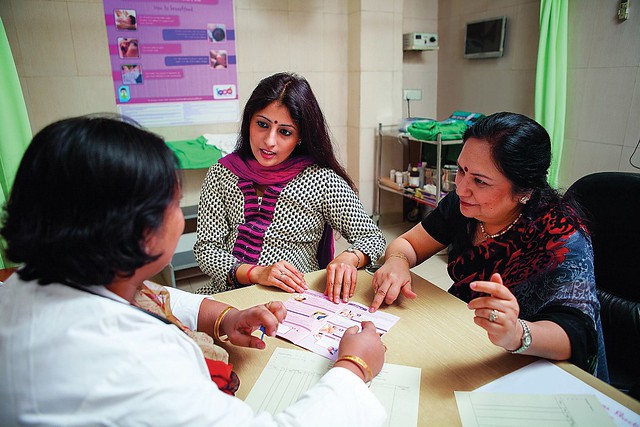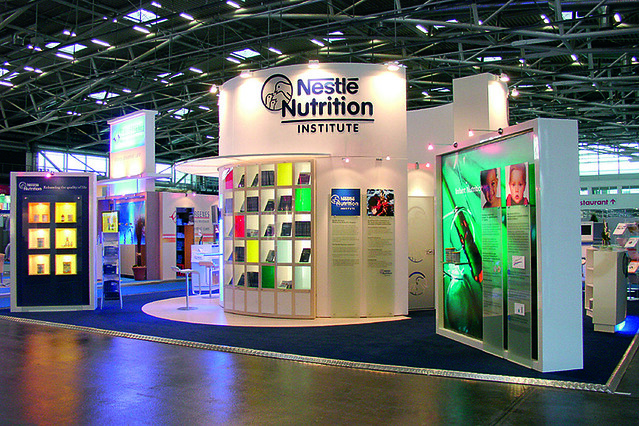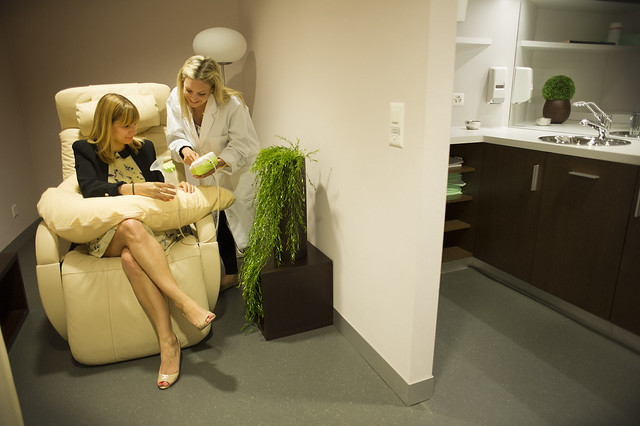Supporting breastfeeding
Our commitment: Support breastfeeding and protect it by continuing to implement an industry-leading policy to market breast-milk substitutes responsibly

We believe that breast-milk is the ideal nutrition for babies. This is why we promote the World Health Organization (WHO) recommendation to exclusively breastfeed infants for the first six months of life, followed by the introduction of adequate nutritious complementary foods along with sustained breastfeeding up to two years of age and beyond.
Our objectives in 2016
Ongoing: Ensure that the practices of the Nestlé Nutrition business consistently meet the FTSE4Good Index breast-milk substitute (BMS) criteria.
Ongoing: Continue to strengthen our policy and procedures to maintain industry leadership on the implementation of the WHO Code.
Ongoing: Continue to report publicly on our progress on the implementation of our policy on the WHO Code.
Our progress to date
We strengthened our capacity to provide an environment conducive for breastfeeding through our global Maternity Protection Policy, which includes the right to extend maternity leave up to ix months and flexible work arrangements. We currently have 302 breastfeeding areas and will equip all premises with more than 50 female employees with breastfeeding rooms by 2018.
In 2016, through our Nestlé Start Healthy Stay Healthy programme, we partnered with several public and private organisations, opening 945 breastfeeding rooms in India and about 1500 in China. We have also developed a breastfeeding room locator mobile app for mothers.
We have made commitments to support breastfeeding-conducive work environments through the Every Woman, Every Child movement and the Clinton Global Health Initiative, and encourage other stakeholders and companies to follow. For children who cannot be breastfed as recommended, infant formula is the only suitable breast-milk substitute (BMS) recognised as appropriate by the WHO.
We are committed to fully complying with the WHO Code as implemented by national governments throughout the world, as a minimum. In 152 countries considered to be higher-risk in terms of infant mortality and malnutrition, we voluntarily apply our own stringent policy when it is stricter than the national code.
-
Does Nestlé donate infant formula in response to emergency situations like typhoons and earthquakes?
Nestlé does not donate products to individuals and will not donate infant formula for emergency use to governments or organisations acting on their behalf, unless strict conditions are met. These conditions are described in the Standard for Donations or Low-Cost Supplies for use in Emergencies and for Social Purposes.
We support, promote and protect breastfeeding at Nestlé. WHO recommends that whenever there is an emergency, it is extremely important that babies who are already being breastfed continue to be and that babies who are not breastfed restart breastfeeding. Only when this is not possible should babies be given infant formula, in the safest possible way. According to the World Health Organization (WHO), conditions that arise during emergencies tend to aggravate the health risks associated with artificial feeding.
Therefore, in line with the World Health Organization (WHO) Guiding Principles for feeding Infants and Young Children during Emergencies (pdf, 4Mb), Nestlé may respond to official requests from the government of the country affected by the emergency situation or by a designated emergency response coordinating body acting on behalf of the government.
In such cases, the products will only be delivered to the official body that requests them, who will assess local needs and distribute the product accordingly.
We are proud to have been the first BMS manufacturer included in the FTSE4Good Index and to have consistently met its rigorous criteria for the responsible marketing of BMS since 2011. We were also ranked first in the sub-index of the Access to Nutrition Index’s pilot assessment of BMS marketing policies and practices.
We continue to strengthen our compliance management system. We have enhanced our internal and external grievance mechanisms, such as 'Tell Us' – through which anyone can raise concerns about our BMS marketing practices – and we have made the training of our staff working in infant nutrition global, to reinforce their capacity to market our infant products responsibly. In 2016, our practices were audited in 37 different countries by corporate auditors, in three countries by Bureau Veritas and in one by PricewaterhouseCoopers. Our progress is shared on our corporate website.
Our objectives towards 2020
By 2018: Ensure that all provisions supporting breastfeeding in our Maternity Protection Policy are implemented.
By 2020: Advocate for a breastfeeding‑friendly environment by supporting the set-up of breastfeeding rooms in communities where we operate.





